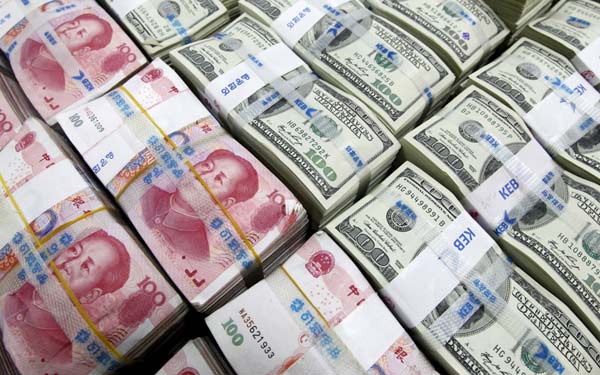The depreciation of the renminbi to a five-year low against the U.S. dollar has spurred a currency exchange boom on mainland China, compelling the regulator to strengthen intervention measures to control capital outflow pressure.
According to China Daily, many people have been requesting banks to change their Chinese currency into dollars. They have been purchasing more foreign currency-denominated fiscal products, with most utilizing their yearly currency exchange quota.
China's top foreign exchange regulator, the State Administration of Foreign Exchange, has said that mainlanders can each exchange renminbi for a maximum of $50,000 per year, or the equivalent in other foreign currencies.
The regulator has issued guidelines to mainland banks on controlling their dollar supplies, according to Nanfang Metropolis. Furthermore, employees have been advised not to propose foreign exchange products to customers.
Reportedly, the renminbi traded on Shanghai-based China Foreign Exchange Trade System has depreciated by over 1.5 percent against the dollar in the past week. The decline is the largest since Aug. 11, 2015, when the People's Bank of China announced a foreign exchange rate reform.
There are speculations that the bank may tolerate faster decline of the renminbi and introduce a more flexible foreign exchange policy this year. Former official with the regulator, Guan Tao, pointed out that the rush to sell the renminbi would heighten capital outflow pressure and result into more irrational market ventures.
The central bank has taken a move to stabilize the daily reference rate of the renminbi by restricting onshore movements to a maximum increase or decrease of 2 percent, at 6.5626 renminbi per dollar. The new rate compares with the multiyear low of 6.5646 on Jan. 7 that caused a halt to trading in onshore equity markets for two days.
Based on a report by the Xinhua News Agency, there is no need for the majority of households to exchange the Chinese currency for dollars to preserve the asset value, since the renminbi is unlikely to depreciate sharply. The return on renminbi-denominated investment products is as well still higher as compared to the U.S. dollar ones.


